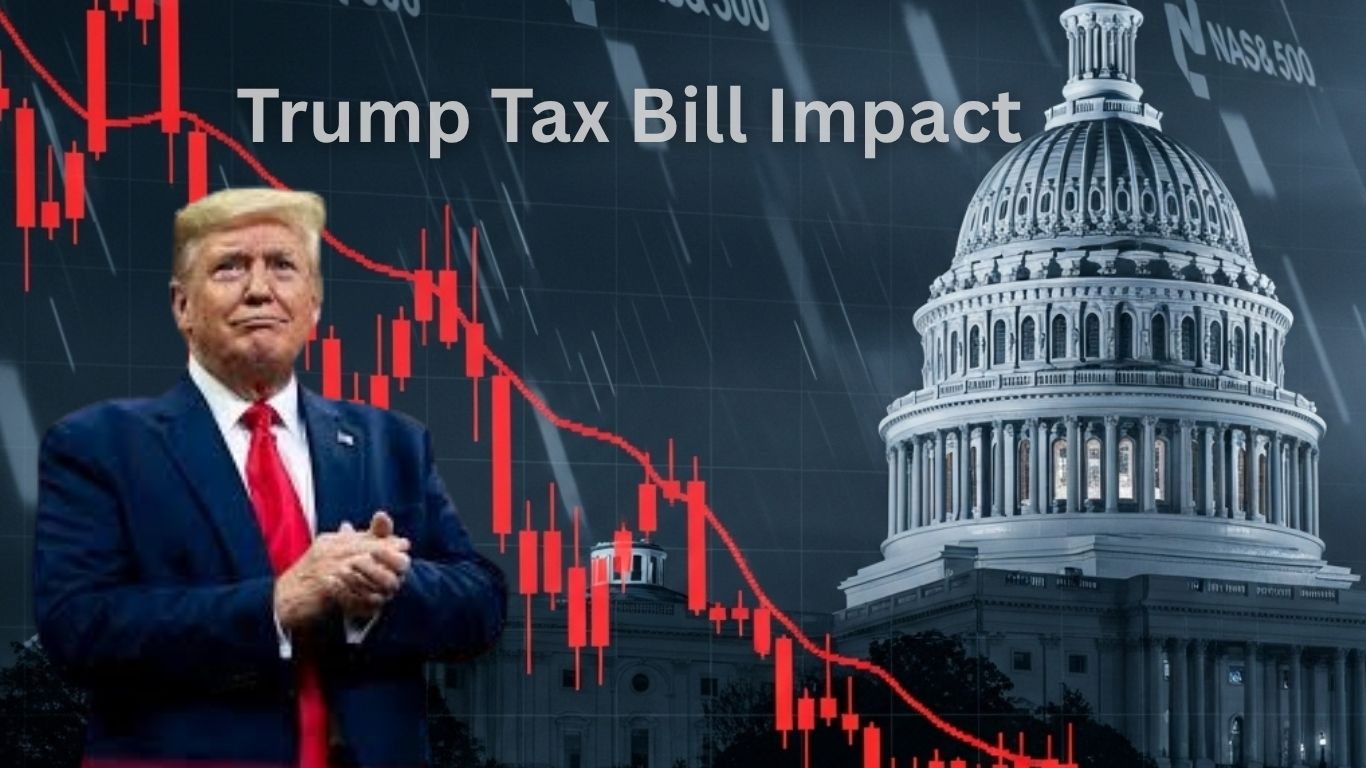- S&P 500 and Nasdaq: Both these indexes fell below record levels after the US Senate passed Donald Trump’s tax and budget bill. An atmosphere of panic was seen among investors.
- Dow futures: The futures market also declined, as investors became cautious about the impact of the tax bill and the status of trade agreements.
Reasons for the decline
1. Trump tax bill concern
The tax bill that the Senate has passed includes tax deduction and increase in government spending. This has increased the concern in the market that this may increase government deficit and inflation, which are negative signs for the stock market.
2. Uncertainty for business and tariffs
Apart from the tax bill, the market is also eyeing the US trade agreements and tariffs (fees). Investors are currently waiting for a clear situation, causing instability.
Which sectors affected
| Sector/Index | impact |
| Tech Companies (Nasdaq) | The biggest decline, as these companies are sensitive to taxes and interest rates |
| S&P 500 and the Dow | Slight decline, but investors have turned cautious |
| Futures Market | US futures were weak, indicating uncertainty ahead |
Real Also: Is The Finance Industry Harming our Economy
What should we keep an eye on going forward
| Track Down | Why is it Important |
| Finalization of tax bill | If there is any change in this then it can have a big impact on the market |
| The Bond Market and Interest Rates | Increase in government spending may increase interest rates, which will increase pressure on the stock market |
| Trade Agreements | Any new tariff deal or failure could shake the market quickly |
| Quarterly results of tech companies | This will tell whether the tech sector will be able to withstand this volatility or not |
The US stock market showed a slight decline after the Senate passed the Trump tax bill. The S&P 500 and Nasdaq have come down from their record highs, while Dow Futures and other indexes are also sluggish. Investors will now have to keep an eye on the final decision on the tax law, trade agreements and interest rates.









